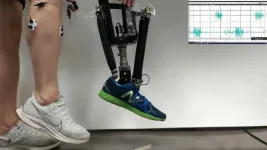The medical community has understood for some time that experiences with discrimination are bad for the health of people from underserved racial or ethnic groups — populations burdened with worse health outcomes than white patients for conditions including many cancers. The effects of chronic stress on the body have been considered one chief culprit.
Now, a research team from the Keck School of Medicine of USC and USC Norris Comprehensive Cancer Center, supported in part by the National Institutes of Health, has added new knowledge about how Black patients in particular are impacted by exposure to discrimination in the course of cancer care. Through interviews with Black cancer survivors, the scientists found that experiences with implicit and explicit bias occurred throughout the entire oncology care process, from scheduling appointments to doctor visits. The results included slowdowns in diagnosis and the delivery of care. Some patients even opted to diverge from recommended treatment.
“Getting the right treatment in a timely manner really sets patients up for a better prognosis,” said corresponding author Albert Farias, PhD, MPH, assistant professor of population and public health sciences at the Keck School of Medicine and a member of the USC Norris Cancer Control Research Program. “By learning about how exposure to racial discrimination hinders receipt of high-quality, evidence-based cancer treatment for Black patients, we can start looking at what we can do about it. As an exposure, it’s modifiable, which means there’s a chance for us to intervene.”
The study was published today in the Journal of the National Cancer Institute.
Examining the Black experience of cancer care
When the researchers launched the project, they did not set out to focus on racial discrimination. They sought to add more broadly to the understanding of Black cancer patients’ experiences, as part of Farias’s larger goal of determining what drives high-quality cancer care and how to eliminate racial and ethnic disparities in outcomes. In conversations with study participants, instances of racial discrimination emerged as a common theme from a substantial majority of patients.
“We realized we needed to ask, ‘Why do you continue to go back to a specific provider if this is how you’re treated?’” Farias said. “The most shocking part is that our participants said it’s part of the Black experience. One participant noted, ‘It’s just something that we deal with all the time.’”
The researchers conducted in-depth interviews with 18 Black cancer survivors in the Los Angeles area, age 29 to 88. Bias that surfaced was classified as overt discrimination — that is, behaviors showing explicit, intentional racial prejudice — or microaggressions — subtler, often unintentional manifestations.
Overt examples included a reference to the Black community by a physician as “you people” and a comment about how “most of you” were unable to afford a particular treatment. Microaggressions happened when patients felt they were treated differently because of their race, from having concerns brushed aside to being ignored in the waiting room while those who checked in later were seen.
Patients reported feeling degraded, frustrated and disheartened in the face of being exposed to racial discrimination — even dreading the act of seeking care. Indeed, some patients turned to emergency rooms and urgent care clinics, put off appointments and even walked out without attending a specialist visit due to being ignored. Others modified their own behavior, such as dressing up for the clinic, in hopes of being treated better. Perhaps most detrimental, there were reports of not being screened for colon cancer despite showing symptoms and of refusing to follow oncologists’ recommendations out of mistrust.
“When we say there’s a history behind mistrust of physicians among the Black community, it’s not just one incident years and years ago, such as the Tuskegee experiment [in which Black men with syphilis were left untreated],” Farias said. “It’s interactions with the health care delivery system that happen every day. If we’re trying to build trust, we need to address the entire system.”
Positive signs arise among the negative
A few participants in the study reported positive interactions during oncology care. Overall, the researchers identified two key factors: ready access to providers, from being seen promptly to not feeling rushed during visits, and displays of empathy, such as when oncologists asked patients questions about their families.
“We saw that person-centered care made a difference,” Farias said. “It breaks down the hierarchy of, ‘I’m the doctor and you’re the patient.’ It can be as simple as listening to patient’s needs, explaining things in a way they understand and talking to them rather than at them.”
He and his colleagues hope to conduct larger-scale studies with Black cancer survivors measuring exposure to racial discrimination such as the negative experiences reported by participants in this study. Ultimately, evidence from larger cohorts could be applied, by Farias and others, to find ways for mitigating bias and its effects perpetuating disparities in cancer outcomes.
“I’m optimistic that this will be one of the first of many papers to explore this topic,” Farias said. “We know that racial discrimination occurs. We have to document it and call attention to it, so we can make the changes that are needed.”
Co-author Chanita Hughes-Halbert, PhD, holder of the Keck School’s Dr. Arthur and Priscilla Ulene Chair in Women's Cancer and associate director for cancer equity at USC Norris cancer center, noted that discrimination is a systemic problem that must be addressed on many levels, from policy to patient.
Potential pieces of that puzzle include emerging standards that call for oncologists to ask patients about risk factors they encounter; education and awareness initiatives involving affected communities; efforts to diversify the health care workforce; and navigation programs that offer patients one-on-one support from advocates.
“For providers to understand the lived experiences of patients is really critical,” said Hughes-Halbert, who is also professor and vice chair for research in the Department of Population and Public Health Sciences. “To the extent they’re able to have more effective conversations, across patient populations, they’ll be equipped to provide higher-quality care.”
About this study
The first author of the study is Elleyse Garrett. Other co-authors are Cindy Ma, Carol Ochoa-Dominguez, Stephanie Navarro and Paul Yoon, all of the Keck School of Medicine of USC.
This work was supported by an institutional Zumberge Research award for Diversity and Inclusion awarded by the University of Southern California and by the National Cancer Institute of the National Institutes of Health [K00CA264294].
END


